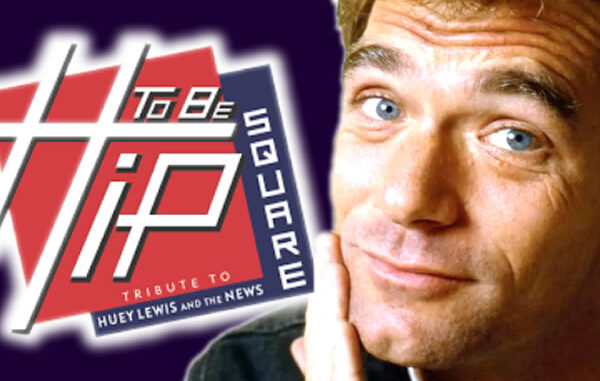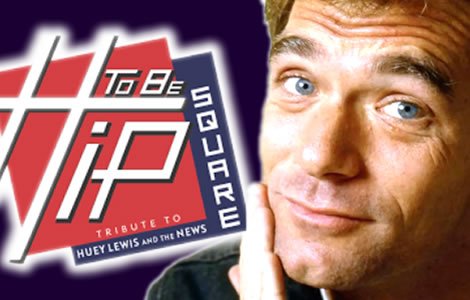
In 1986, Huey Lewis and the News released “Hip to Be Square,” a song that would become one of their most iconic hits. With its catchy melody, upbeat tempo, and witty lyrics, the song quickly resonated with listeners and became a defining track of the 1980s.

Beyond its initial appeal, “Hip to Be Square” gained a second life through its association with Bret Easton Ellis’s novel American Psycho, cementing its place in American pop culture.
As a soundtrack to Ronald Reagan’s brash America, “Hip to Be Square” remains a testament to the decade’s unique blend of optimism and consumerism.
The Release and Appeal of “Hip to Be Square”
“Hip to Be Square” was released as the lead single from Huey Lewis and the News’ fourth studio album, Fore! The song’s release in October 1986 came at a time when the band was already riding high on the success of their previous album, Sports, which had produced several hit singles.
“Hip to Be Square” quickly climbed the charts, reaching number three on the Billboard Hot 100 and solidifying the band’s status as one of the leading pop-rock acts of the decade.
The song’s appeal lay in its infectious energy and relatable lyrics. With a driving beat, punchy horns, and Lewis’s distinctive vocals, “Hip to Be Square” was an anthem for the everyman.
The lyrics, which humorously celebrated the virtues of conformity and self-improvement, struck a chord with listeners. In an era characterised by excess and materialism, the song’s tongue-in-cheek embrace of mainstream values resonated with a wide audience.
Soundtrack to Reagan’s America
“Hip to Be Square” perfectly captured the spirit of Ronald Reagan’s America. The 1980s were a time of economic prosperity, marked by a surge in consumerism and a focus on personal success.
Reagan’s presidency emphasised the American Dream, with its promise of upward mobility and individual achievement. “Hip to Be Square” echoed these themes, celebrating the transformation from rebellious youth to responsible adult.
The song’s lyrics reflect this shift: “I used to be a renegade, I used to fool around / But I couldn’t take the punishment and had to settle down.” The protagonist of the song embraces a more conventional lifestyle, trading in his wild ways for a stable, productive existence.
This narrative mirrored the broader cultural trends of the 1980s, where many young adults were navigating the pressures of career advancement and social conformity.
Association with American Psycho
While “Hip to Be Square” was a hit in its own right, its cultural impact was further amplified by its association with Bret Easton Ellis’s 1991 novel American Psycho.
The book, which satirises the excesses of 1980s yuppie culture, features a memorable scene in which the protagonist, Patrick Bateman, delivers a monologue about Huey Lewis and the News. Bateman’s analysis of “Hip to Be Square” is both a homage to the song and a critique of the superficiality of the era.
In American Psycho, Bateman praises the song for its “sarcastic, yet affectionate tribute to conformity.” He views it as a reflection of the societal pressures to fit in and succeed.
This scene, later immortalised in the 2000 film adaptation starring Christian Bale, helped to cement “Hip to Be Square” as a cultural touchstone. The juxtaposition of the song’s upbeat, catchy sound with the dark themes of the novel created a powerful contrast that underscored the hollowness of the characters’ lives.
Musical Composition and Legacy
Musically, “Hip to Be Square” is a masterclass in pop-rock production. The song features a tight, driving rhythm section, punctuated by energetic brass riffs and catchy guitar hooks.
Huey Lewis’s vocals are confident and charismatic, delivering the lyrics with a blend of sincerity and irony. The production quality, with its polished sound and crisp instrumentation, exemplifies the high standards of 1980s pop music.
The legacy of “Hip to Be Square” extends beyond its initial chart success and association with American Psycho. The song has been covered by various artists and featured in numerous films, TV shows, and commercials, ensuring its continued relevance.
Its enduring popularity is a testament to its timeless appeal and its ability to capture the essence of a particular moment in American history.
A musical masterpiece and Rock radio hit
“Hip to Be Square” continues to resonate with audiences today, not only as a nostalgic reminder of the 1980s but also as a commentary on the enduring pressures of conformity and success.
In an era where social media and digital culture place new demands on individuals to project a certain image, the song’s message remains relevant.
The humour and irony embedded in the lyrics provide a lighthearted yet insightful critique of societal expectations.
Moreover, the song’s association with American Psycho adds layers of meaning, inviting listeners to reflect on the darker undercurrents of 1980s culture. The novel and film adaptation offer a satirical look at the era’s obsession with wealth, status, and appearance, themes that are still pertinent in today’s consumer-driven society.
“Hip to Be Square” serves as both a celebration and a critique of these values, making it a multifaceted and enduring piece of pop culture.
Remembering the times was never so classy on Capitol fm
“Hip to Be Square” by Huey Lewis and the News is more than just a catchy hit from the 1980s; it is a cultural artefact that encapsulates the spirit of an era.
Its witty lyrics, infectious melody, and polished production made it a standout track upon its release in 1986. The song’s association with American Psycho added depth to its legacy, highlighting the complexities and contradictions of the time. As a soundtrack to Ronald Reagan’s brash America, “Hip to Be Square” remains a timeless anthem that continues to resonate with listeners, offering both nostalgia and insight into the enduring challenges of conformity and success.
